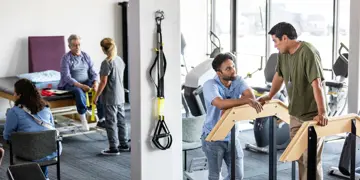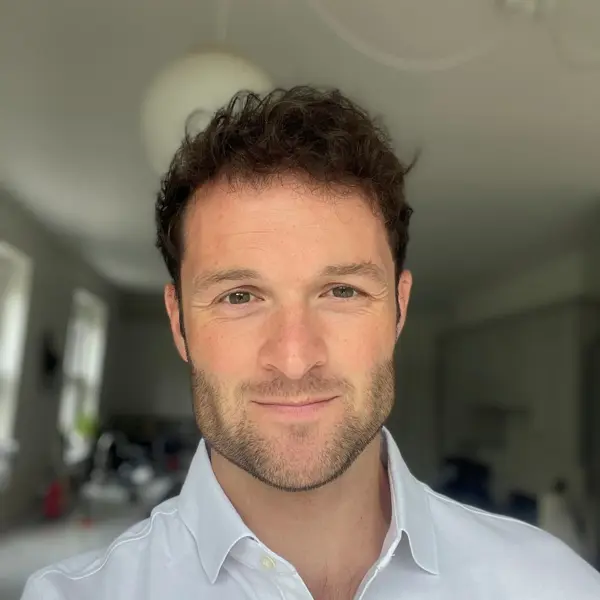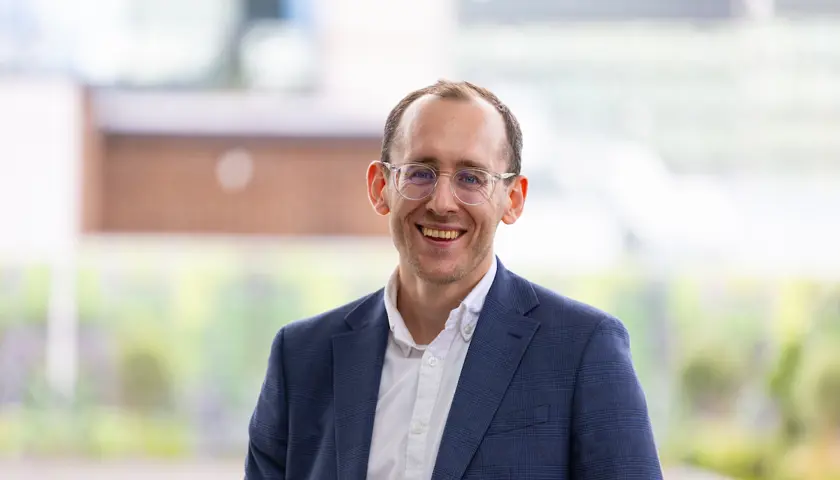A world of possibilities – the appeal of occupational health
A world of possibilities – the appeal of occupational health
Occupational health is often misunderstood, but it can offer huge opportunities that go well beyond the patients being treated. Tim Tonkin reports
Following the completion of his second foundation year back in 2016, John Colvin found himself at a crossroads early on in his career.
Despite enjoying his first two years as a qualified doctor, he now found himself unsure about his future in a health service already at that time contending with a growing crisis in understaffing and looming strike action by the then junior doctors about the imposition of a widely loathed new contract.
Dispirited by the reality surrounding him, Dr Colvin even began to question whether he wanted to remain in medicine at all. Almost a decade on, however, Dr Colvin now works as an occupational health physician.
It’s a role that sees him assessing and advising on the effects of health on work, and vice versa, in a wide range of occupations and settings from bus drivers and teachers to tunnel workers. This is typical of the specialty – doctors working in the field of occupational health can find themselves operating in a wide range of environments in the NHS and across the private and professional sectors.
The role of an occupational health physician encompasses a gamut of duties. This primarily includes assessing how health issues affect an individual’s work and assessing and investigating work-related health conditions.
Accidental career
In doing so, occupational health physicians have to negotiate a complex dynamic which sees them meet the requirements of the organisation employing them, while fastidiously maintaining their ethical and legal duties to their patients.
While he loves the variety and unique challenges and rewards presented by the OHM (occupational health medicine) specialty, it was in many ways a career pathway he stumbled on to rather than set out to find.
After leaving the NHS in 2016 and joining the British Army where he served as a medical officer, Dr Colvin initially began training to become an anaesthetist but found himself increasingly drawn to what he later realised were the occupational health aspects of his role in the armed forces.
‘My time in the military was effectively my introduction to occupational medicine,' says Dr Colvin.
‘During my undergraduate studies I had almost zero exposure, the only mention was being told to take an occupational history when doing a respiratory assessment.
‘As a medical officer in a primary care context, as well as providing treatment, your responsibility is also in assessing whether the soldier is fit to be doing the job. There were also then wider considerations relating to health such as advising the chain of command on emerging themes of ill-health within a regiment or the operational impact of a diarrhoea outbreak, for example.
‘I felt like I was delivering a much broader remit as a doctor over solely providing treatment, and that's something that appealed to me.’
One of the things that has always appealed is the ability to influence health beyond just the patient in front of you
John Colvin
After leaving the army in 2021, Dr Colvin undertook a year-long hyperbaric medicine fellowship at the Diving Diseases Research Centre, during which time he obtained his diploma in occupational medicine to become an occupational health physician. He is now in the final stages of preparing an application for specialist registration as a consultant occupational physician via the portfolio pathway.
He now divides his time working for the occupational health providers HPG (Health Partners Group) and for TunnelMed – a firm specialising in managing the specific risks and health needs of the tunnelling industry.
As well as managing work-related health issues on an individual basis, occupational physicians are also called upon to formulate new or influence existing healthcare policies for the organisation employing them.
This responsibility means that they are able to use their clinical skills and judgement to play a central role in producing standards, protocols and safety guidelines across entire organisations, something that Dr Colvin says he relishes.
‘One of the things that has always appealed is the ability to influence health beyond just the patient in front of you,’ says Dr Colvin.
‘In occupational health, certainly, as you get into more senior roles advising on workforce health and safety policy, you can have a really significant impact on a huge population.
‘You have the opportunity to do a huge amount of good in a number of different ways, whether it is helping someone return to work after a long absence, diagnosing the cause of work-related symptoms to prevent further harm or leading health policy for an organisation.’
To become an occupational physician doctors can either take the certificate of eligibility for specialist registration route, also known as the ‘portfolio pathway’, or by entering a specialty training programme following the completion of foundation years.
According to the NHS, there are more than 50 occupational medicine consultants working in the health service in England, with 2025 seeing 119 applications for just seven specialty trainee 3 places.
Coming from a family of doctors, James Fisher – like Dr Colvin – had a direct personal connection to the field of occupational health medicine.
Much like Dr Colvin, however, he found his way into OHM in a roundabout way having heard little about the area while studying medicine.
After gaining his primary medical qualification in 2016, Dr Fisher felt unsure of what direction to take his career. After working as a clinical teaching fellow in education, and as a lecturer at the University of Surrey, he began internal medical training gaining his membership of the Royal College of Physicians in 2021.
However, concerns about managing his work/life balance made him begin to question this choice.
‘[At that time] I was about to get married, I had a dog and wanted to have a have a child,’ explains Dr Fisher.
‘Just the idea of being a registrar, working nights while living an hour away just wasn’t the right work/life balance for me.
‘My grandmother and mum worked in occupational medicine, and so it was something that I had heard of but not really through work or training.
‘You hear about “occy health” in the hospital and it’s something that you’ve got to do, but you don’t really know what they do.’
Driven to succeed
After meeting with the HPG, Dr Fisher was offered an opportunity to serve as a part-time medical adviser while continuing his role at the University of Surrey.
Today, Dr Fisher works full-time as an occupational health physician, a varied role that has seen him conduct driver medicals for a bus company to providing occupational health services to the staff working within Formula 1.
‘I talk to office workers with carpal tunnel or complex mental health and then move to lorry and forklift drivers. Then there are also some weird and wonderful jobs such as people working with compressed air or in narrow environments,’ Dr Fisher says.
‘In addition to this, you are tasked with reviewing policies and procedures, sickness absence policies, offering advice on those things, so you’re not just looking after the health of a person on an individual level, you’re supporting the health of an organisation.’
Occupational health requires doctors to not only use their clinical abilities but to also be exceptional communicators and to have a thorough knowledge of employment law and legislation relating to equality and discrimination and workplace health and safety.
As an occupational health doctor you are making huge decisions about people’s lives
James Fisher
Dr Fisher says that while his role did not see him dealing with medical emergencies in the way he had while working in the NHS, navigating the health needs of those he cares for with the requirement of being impartial was often a delicate balance.
‘Whilst I’m not making life and death calls every day, as an occupational health doctor you are making huge decisions about people’s lives, because by saying someone’s not fit for work, has huge implications like how they are going to pay their mortgage?
‘If a lorry driver is not fit for work, you have an ethical duty to protect the public, but it’s still very difficult to tell someone that they can’t do their job.’
While recognising that a career as an occupational health physician is not for everyone, Dr Fisher says he hopes that increasing numbers of doctors will consider a specialty which remains relatively understaffed and increasingly relevant.
With the pandemic having exposed the extent to which health can affect work and the economy, Dr Fisher believes that an occupational health perspective needs to become more broadly incorporated into medicine and medical training.
‘One of the things I would like to see is a greater degree of engagement of occupational health within the medical school curricula,’ says Dr Fisher.
‘If I think about my time at medical school, we were never taught to consider how someone’s work impacts upon them or how health impacts upon work, except in obvious and classic cases.
‘[Health secretary] Wes Streeting has talked about the need for GPs to be giving out fewer fit notes and instead prescribing people to go to the gym. This implies that fit notes are being given out inappropriately when actually it’s just that GPs don’t have the time you need to delve into how a patient’s work life might be affecting them or have direct access to their employer.
‘As an example, if you consider that around one in four of us will have a period of mental ill health at some point in our lifetime, and that there are going to be people in work with mental ill health at any one time, making sure that all doctors have a good understanding of the occupational issues alongside an individual’s health is key.’





